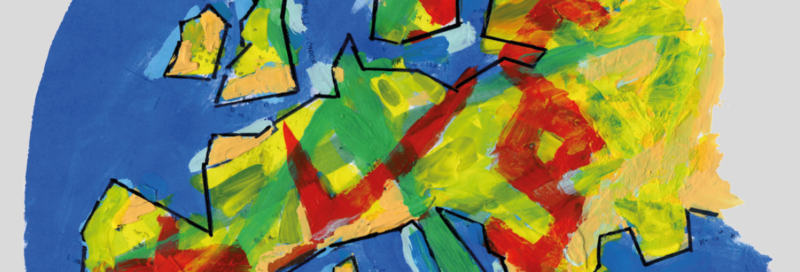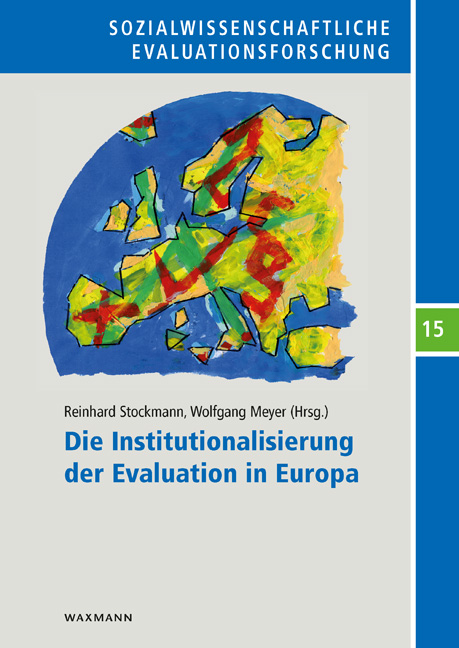The book ‘The Institutionalisation of Evaluation in the Americas’ (https://link.springer.com/book/10.1007/978-3-030-81139-6#toc) is the second volume of the project ‘Evaluation Globe – Compendium on the Institutionalisation of Evaluation’ with the overall aim to provide an interdisciplinary audience with cross-country learning to enable them to better understand the institutionalisation of evaluation in different nations, world regions and sectors.
Based on a screening, eleven countries, in which evaluation plays a significant role, were included in the Americas volume: Argentina, Bolivia, Brazil, Canada, Chile, Colombia, Costa Rica, Ecuador, Mexico, Peru, and the USA. In addition, three transnational institutions, that have supported the national setup of the institutionalisation of evaluation within the Americas-region: CLEAR-LAC, Independent Evaluation Group (IEG) of the World Bank Group and the Office of Evaluation and Oversight (OVE) of the Inter-American Development Bank. This correspondents to a pool of 35 authors who took over the herculean task and present their country/organisation specific landscape of the institutionalisation of evaluation.
The studies were based on an analytical framework developed by the editors, to guarantee comparability throughout all four volumes of the book series. As for the volume on Europe, published in 2020 (https://link.springer.com/book/10.1007/978-3-030-32284-7), again the three social sub-systems were selected for further investigations about the role evaluation play in its institutional frameworks – this time in the Americas: the national political system as the main authority for decision-making, the civil society for controlling and supporting political governance, and the systems of professions for implementing and improving knowledge and skills production.
The case studies for the Americas show, that while evaluation is very rarely implemented on the primary level of legislation (constitutions and laws), there is a certain number of countries with implementations at the secondary level in form of decrees and regulations. Those countries with a high degree of institutionalisation are also the ones that use evaluations for decision-making. Out of this, however, it can be concluded, that evaluation is very much used as an instrument of the executive branch, but less used by the legislative, as usage by parliaments is scare, except for the USA. The performance in civil society is worse, there is almost no country with an important amount of implementation and use of evaluation, the media are rarely aware, and there is almost no public discussion about evaluation. The institutionalisation of evaluation as a profession is quite heterogeneous: Whereas it is well developed in North America and some Latin-American countries like, for instance, Argentina, Colombia and Costa Rica, there is no such development in the other countries. The development of the professional system is driven by some inherent forces of the evaluation community and mainly individuals, who are specially interested in evaluation. But this goes not hand-in-hand with the raising demand for evaluation professionals in the countries. In opposite, the institutionalisation and use of evaluation is primarily policy driven, linked to new public management and support from transnational institutions.
A further comparison between the Americas and Europe shows, that there are some similarities, as for example the dominance of the political system. The marginal role of civil society, and the autonomous but rarely institutionalised discipline in the systems of professions. There are also some significant differences: for example the poor relationship between legal framework and evaluation policy in Latin America, the missing effect of a broad variety in civil society, and the much bigger and better organized VOPEs in North America. The patterns of institutionalisation do not vary much between the countries. The most important driving force is new public management and the idea of evidence driven policy that spread over both the Americas and Europe in the 1960s. Another important driver in Europe had been the EU and there is no pendant for this in the Americas. However, transnational organisations in the development cooperation context had been important for the implementation of evaluation in Latin America. Surprisingly, the high degree of formal institutionalisation in Latin America do not lead to evaluation practice. This may be a hint for the poor involvement of Latin American administrations into the international public management movement.
If you are interested now, in getting further insights on the institutionalisation of evaluation in the Americas and Europe, please use the discount vouchers below, to get a special 20% discount off the printed books or eBooks!
Further volumes on Asia-Pacific and Africa are underway – we will keep you updated!
Discount voucher „The Institutionalisation of Evaluation in the Americas”
Discount voucher „The Institutionalisation of Evaluation in Europe”

